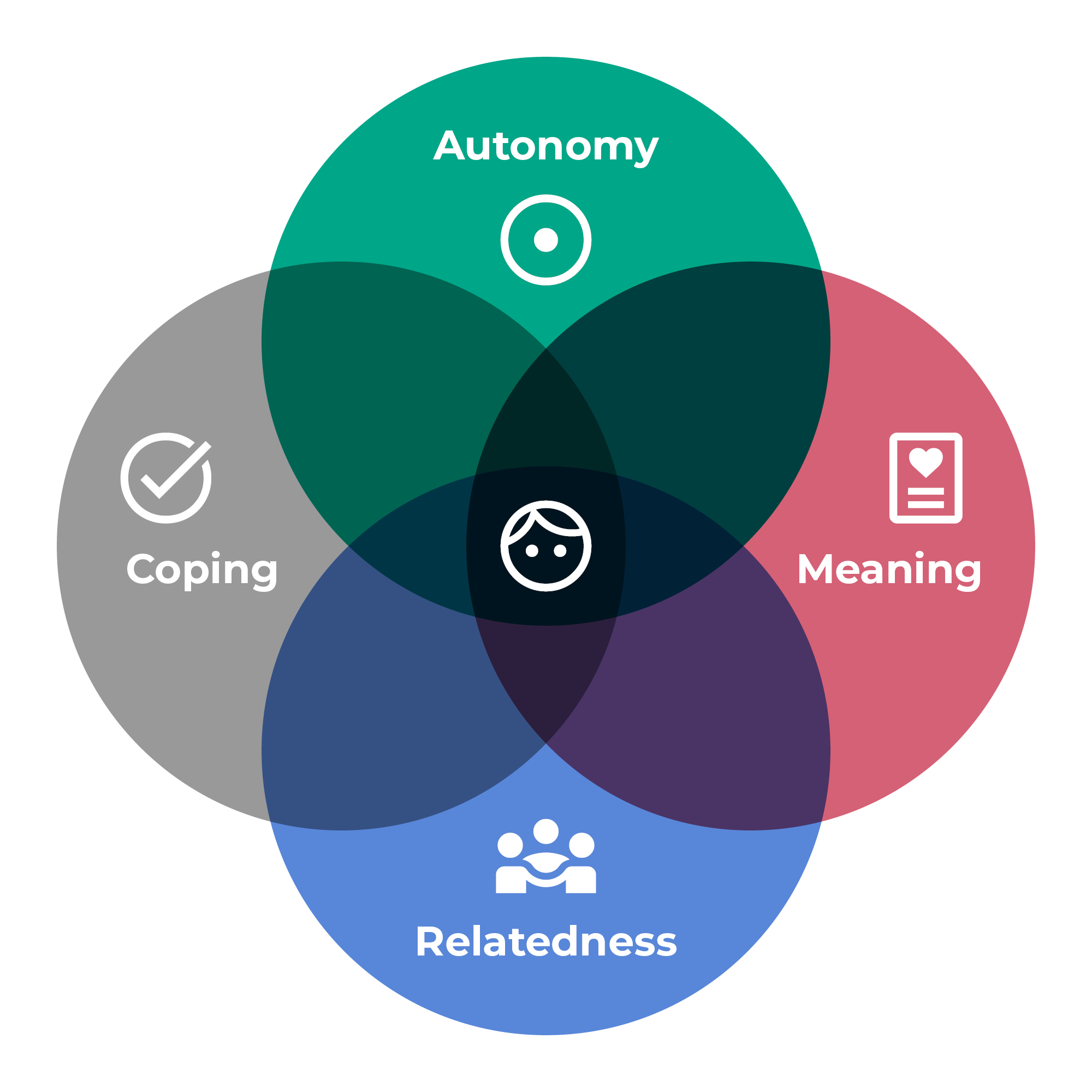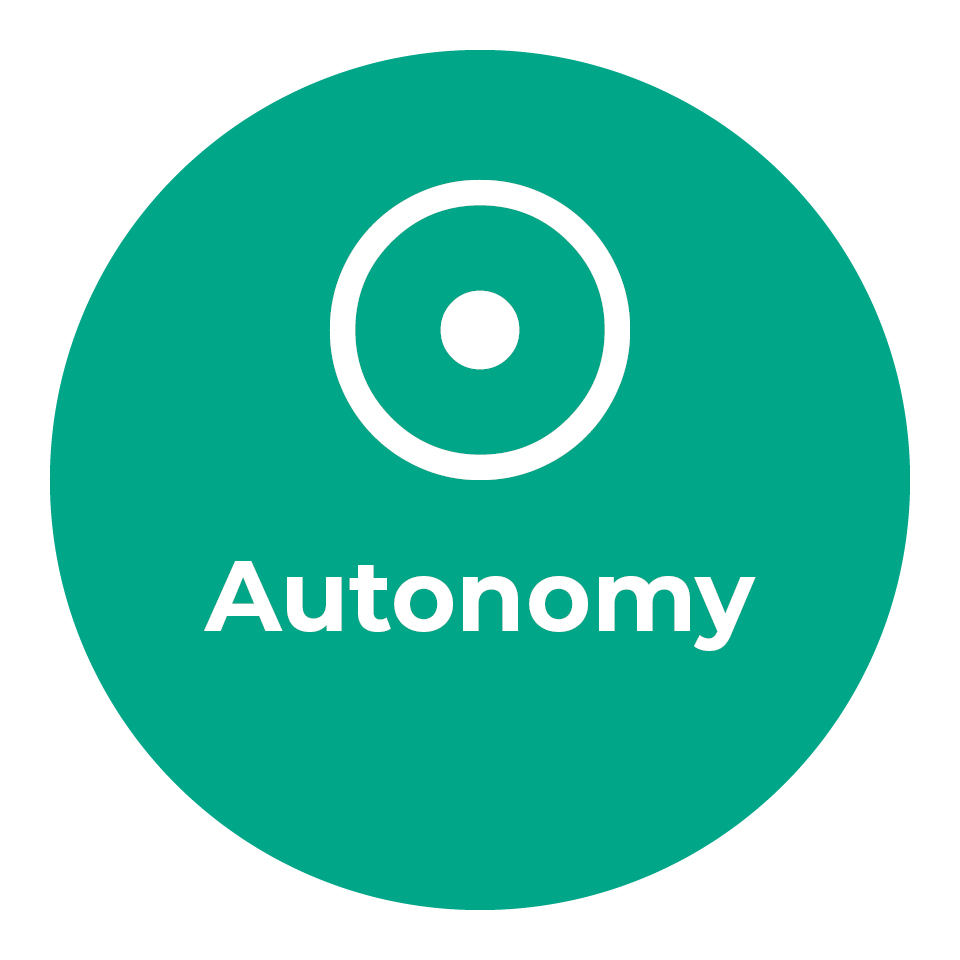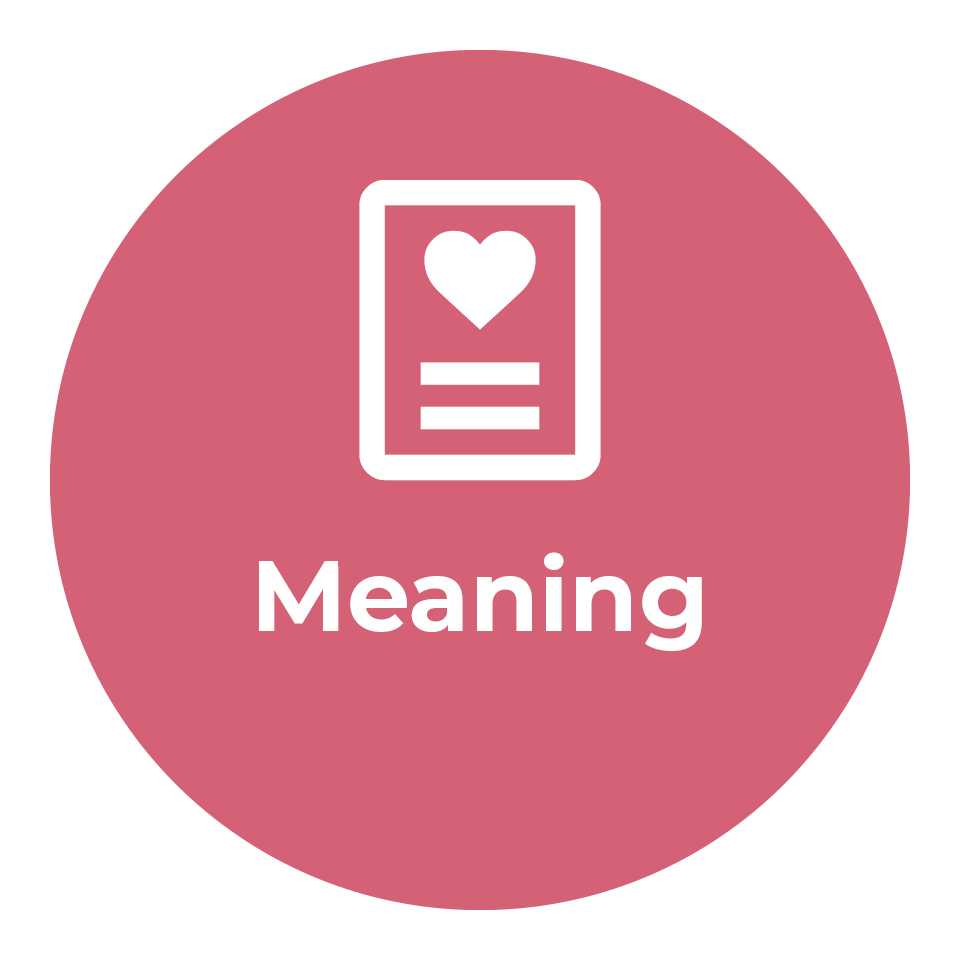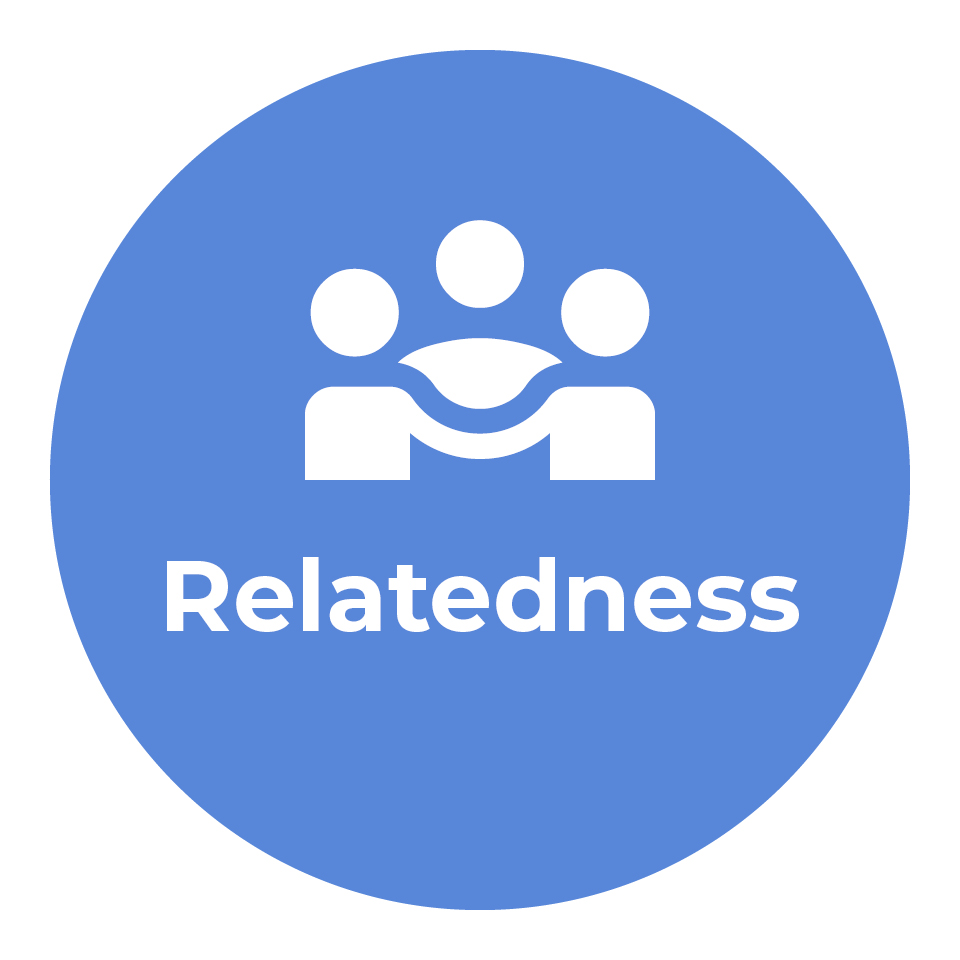How digital technology affects the motivation and basic psychological needs of the healthcare professional

As a manager, it is important to be aware of how digital technology affects the four fundamental psychological needs of the healthcare professional and their motivation to take part in the digital transformation.
When digitalization becomes part of a workflow, it can have both a positive and negative impact for employee motivation and commitment. As a manager, you can help healthcare professionals adjust to the new ways of working. Understanding the factors that drive motivation can provide knowledge and tools to help the healthcare professional in their meeting with the digital transformation.
The digital transformation is not only about the employees acquiring new competencies, but also about a shift in what the individual employee sees as supporting their professional identity. When you have to work in a new way, with new digital technology and perhaps in a changed role towards the citizen (patient), there are factors at play that can push how the nurse or doctor sees themselves as a professional.
Several studies emphasize the employees’ relationship to digitalization as important for the management of digitalization. This concerns, among other things, the employees’ digital competencies and attitude, as well as the nature of the tasks and employee involvement in the development process.
What is motivation?
To be motivated means to be moved to do something. However, we may distinguish between different types of motivation based on the different reasons or goals that give rise to an action. A proposed distinction of motivation is between extrinsic and intrinsic motivation.
- Extrinsic motivation refers to motivation by external rewards or punishments, either abstract or concrete.
- Intrinsic motivation refers to doing something because it is inherently interesting or enjoyable. You may describe this type of motivation as being driven by a desire and an interest in the task itself.
We will focus on intrinsic motivation, as this type of motivation has been shown to be of particular importance.
Research has shown that there are 4 general factors influencing intrinsic task motivation. These are basic psychological needs that we all share to one extent or another. The principle is that the more you accommodate your employees’ 4 basic psychological needs in the work place, the more their intrinsic motivation will be affected in a positive direction.
Conversely, changes in the work, in the organization or in the technological solutions that negatively affect your employees’ psychological needs will also negatively affect their motivation.
Sources / References
- Deci & Ryan (2000), Tønnesvang (2012), Raven (2018) & HR Ledelsesakademiet, Region Syddanmark, Cerasoli, C. P., Nicklin, J. M., & Ford, M. T. (2014). Intrinsic motivation and extrinsic incentives jointly predict performance: A 40-year meta-analysis. Psychological Bulletin, 140(4), 980–1008.

The 4 basic psychological needs
In the following, we will describe each of the 4 basic psychological needs, how they may be affected by digitalization and how you – as a manager – may best promote the psychological needs of your employees in the digital transformation to affect their intrinsic motivation in a positive direction.
The 4 basic psychological needs are:
- Autonomy
- Meaning
- Relatedness
- Coping
1. Autonomy

What is autonomy?
Autonomy is about having self-determination and the opportunity to make your own decisions in relation to your work. Essentially, that you are the master of your own work and that you have an influence on the important decisions that concern your work. On a psychological level, autonomy is about feeling understood, recognized and respected for your professionalism and independence.
How is our experience of autonomy affected by digitalization?
The employee’s experience of autonomy can be affected if the employee is not comfortable with the new technology and does not feel comfortable using it. The use of new technology can give a sense of unpredictability and loss of control if you, as an employee, do not feel that you have control over the technical aspects or if technical problems arise that you cannot solve. Unpredictability has direct impact on the employee’s experience of having control and autonomy of their own work situation. Autonomy can also be affected if the employee does not feel involved and consulted in the introduction of new technology.
Vise versa; if the employee feels well equipped to use the new technology and understands the background of the new way of working, there is a probability that the employee will maintain their experience of autonomy.
Sources / References
- Deci & Ryan (2000), Tønnesvang (2012), Raven (2018) & HR Ledelsesakademiet, Region Syddanmark

How to promote the experience of autonomy in the digital transformation
- Take the employee’s perspective and listen to the employees. See and acknowledge their feelings and experiences.
- Give clear reasons for decisions, e.g. changes in work procedures or priorities, give employees relevant choices, provide information about the context and overall decisions, etc.
- Avoid micro management, meaning controlling employees and meddling in details of the task solution.
2. Meaning

What is meaning?
Meaning is related to having a meaningful direction with what you do. That you have a purpose in your work and can make a difference with your work. Being able to do good for others or society is typically what is meaningful for public servants.
How is our experience of meaning affected by digitalization?
If you do not understand the rationale and background for the decisions behind the introduction of new technology and digitalization or if you do not feel sufficiently informed about what the purpose and ambitions of new digital solutions are, this may negatively affect your experienced level of meaning.
The experience of meaning can also be negatively affected if digitalization brings about changes in the employees’ relationship with citizens (patients) and interferes with their ability to create flexible solutions in their work with citizens (patients). In other words, if the technology is experienced as an obstacle to helping the citizen (patient). If the employee experiences digitalization as an efficiency exercise, where it is about seeing more citizens (patients) in a shorter time. But the opposite can also be the case;
that digital technology provides increased flexibility and the possibility of adaptation in relation to citizens (patients), which can increase the experience of meaning. The key is whether the new technology supports the employee’s experience of being able to use his or her expertise and make a difference for the citizen (patient). Or does digitalization make contact with citizen (patient)s more difficult and hindered?
Sources / References
- Deci & Ryan (2000), Tønnesvang (2012), Raven (2018) & HR Ledelsesakademiet, Region Syddanmark

How to promote the experience of meaning in the digital transformation
- Highlight how digital technology supports professionalism and provides the employee the opportunity to meet the diverse requirements and needs of the citizen (patient).
- Clearly explain the background and purpose of the new digital working methods.
- Clarify how the new digital solutions benefit the citizen (patient) and provide value in treatment.
- Connect the “big why” of digitalization to the tasks in everyday life. Make it visible how the individual efforts contribute to the larger picture and your purpose as a department.
- As a manager, be even more clear and careful in your communication to employees, both in explanations of why you do what you do and how the digital agenda is linked with the strategies and the big agendas.
3. Relatedness

What is relatedness?
It is about being in a meaningful community, where you are together with others striving to achieve common goals and where you experience support. It’s about having a feeling of being “we” and of belonging at the workplace – professionally and socially.
How is our experience of relatedness affected by digitalization?
Do the new digital solutions enable collaboration and being part of a community of colleagues? Or do the new digital solutions make it difficult to maintain a good relationship with colleagues and citizens (patients)?
The quality of the relationships people have in the workplace is important for how they get through changes, such as the introduction of new ways of working and getting used to new digital solutions. This means that if the workplace already has a culture with a focus on colleague community, helpfulness and psychological security, it is likely that this will promote a good change process. Conversely, if you as an employee sit alone and feel that you have to handle the new digital solution alone, or with reduced opportunities to get help from colleagues, this will affect motivation negatively. Misunderstandings can arise in a virtual setting which negatively affect relationships.
Sources / References
- Deci & Ryan (2000), Tønnesvang (2012), Raven (2018) & HR Ledelsesakademiet, Region Syddanmark

How to promote the experience of relatedness in the digital transformation
- Create processes and structures that make it easy to share experiences and knowledge with the new digital working methods. It can also be the initiation of collegial feedback in groups about the new ways of working.
- Peer-to-peer training in the new technology and related workflows.
- Give recognition and positive feed-back to those who persevere and succeed in working with the new digital solutions.
- Create the feeling of lifting as a team and avoid mutual competition between employees by being clear about tasks and roles.
- Define and map the new digital tasks and workflows in a team collaboration – preferably in a start-up phase.
4. Coping

What is coping?
It is about the capacity to accomplish something and to use yourself and your competencies. That you feel you can complete what you have to and that you feel qualified and competent to carry out your work. That you use your strengths and can develop in your work.
How is our experience of coping affected by digitalization?
Some employees may experience greater efficiency in task solving with the use of new digital solutions, while others experience the opposite.
When you have to solve new tasks or your workflows change, you can experience that it is hard to cope with the new ways. For most professionals, solving tasks virtually requires new competencies. If the tasks you normally solve can no longer be solved in the way you are used to, it may cause frustrations because you know you can complete the tasks, but the new framework and technology stand in the way.
On one hand coping is about acquiring technical competencies for handling new digital solutions. On the other hand it is about coping with the changed relationship between the healthcare professional and citizen (patient) arising from digital meetings and communication instead of physical contact. The physical meeting is rich in informal and indirect information, which can be hard to perceive digitally, which in turn can give the impression that you are not competent or that you solve your tasks with poorer quality.
The increase in virtual work can therefore affect our experience of coping. It can be mentally demanding to work virtually and suddenly you may find that you do not feel as professional as you usually do.
Sources / References
- Deci & Ryan (2000), Tønnesvang (2012), Raven (2018) & HR Ledelsesakademiet, Region Syddanmark

How to promote the experience of coping in the digital transformation?
- Structure the work so requirements match competencies, and at the same time ensure that the work and tasks are challenging enough.
- Recognize employee initiatives and suggestions for new ways of doing things, so employees’ ideas are brought into play.
- Acknowledge the results that the employees create under the new conditions, preferably by giving concrete feedback on the task solved.
- Make sure the employee knows his or her new freedom of action and the requirements for the new digital ways of working.
- Ensure good training and competence development, so employees feel prepared for the new requirements.
- Ask open-ended, exciting questions about how the adaptation is going and invite the employees to come up with ideas for proposed solutions.
- 1:1 conversations with employees and individual dialogue and support for those who need it.
- Remove the obstacles that stand in the way of employees being able to solve their tasks effectively.
Questions for reflection
- How do new digital technologies affect your motivation and the motivation of your colleagues?
- Looking at all the advice in the blue boxes which advice do you consider most useful to promote the motivation of yourself and your colleagues in the digital transformation



